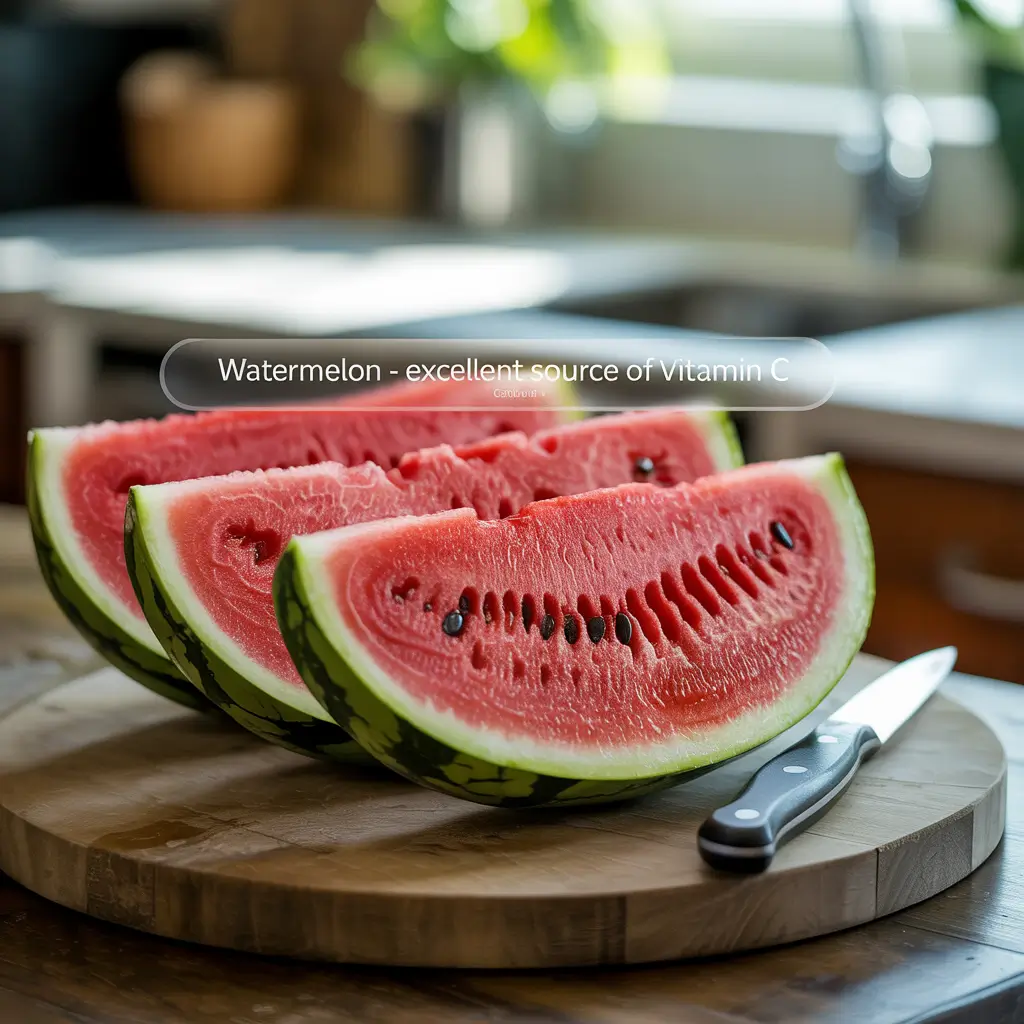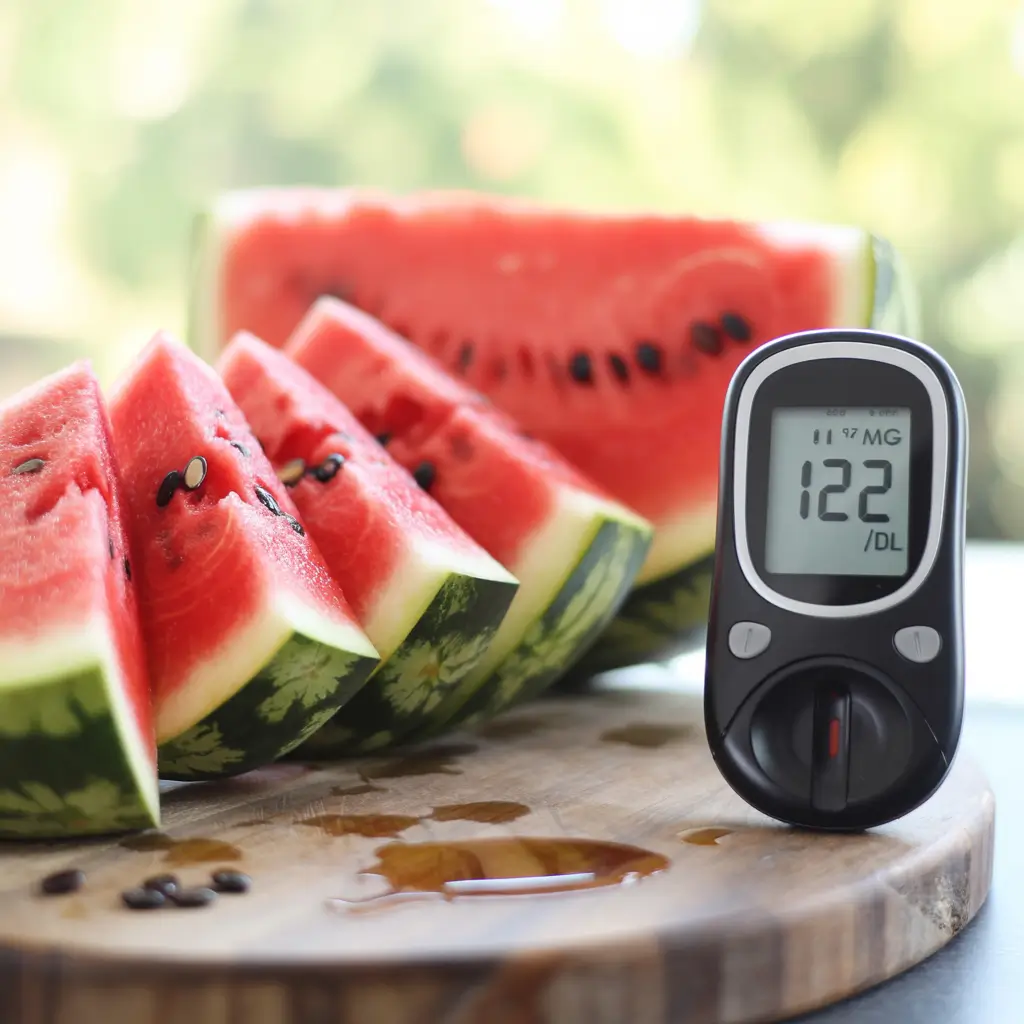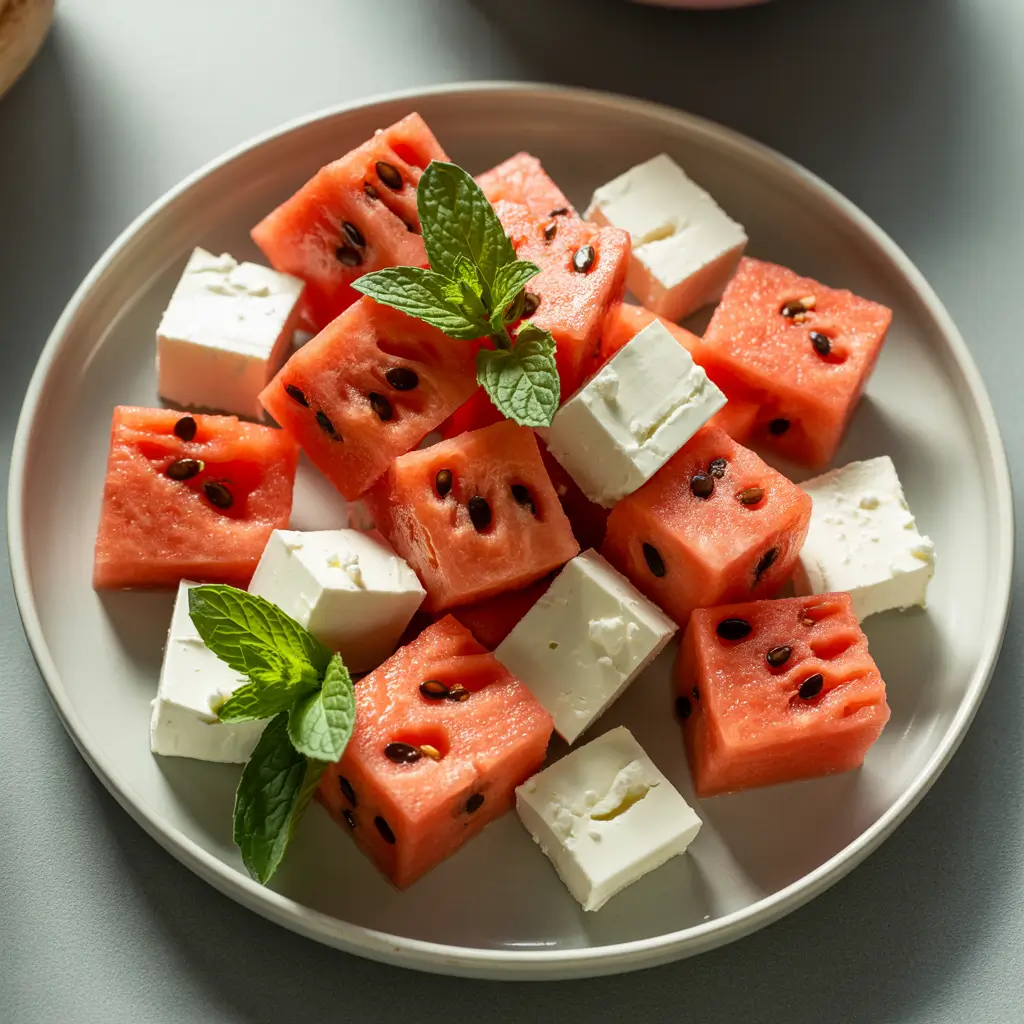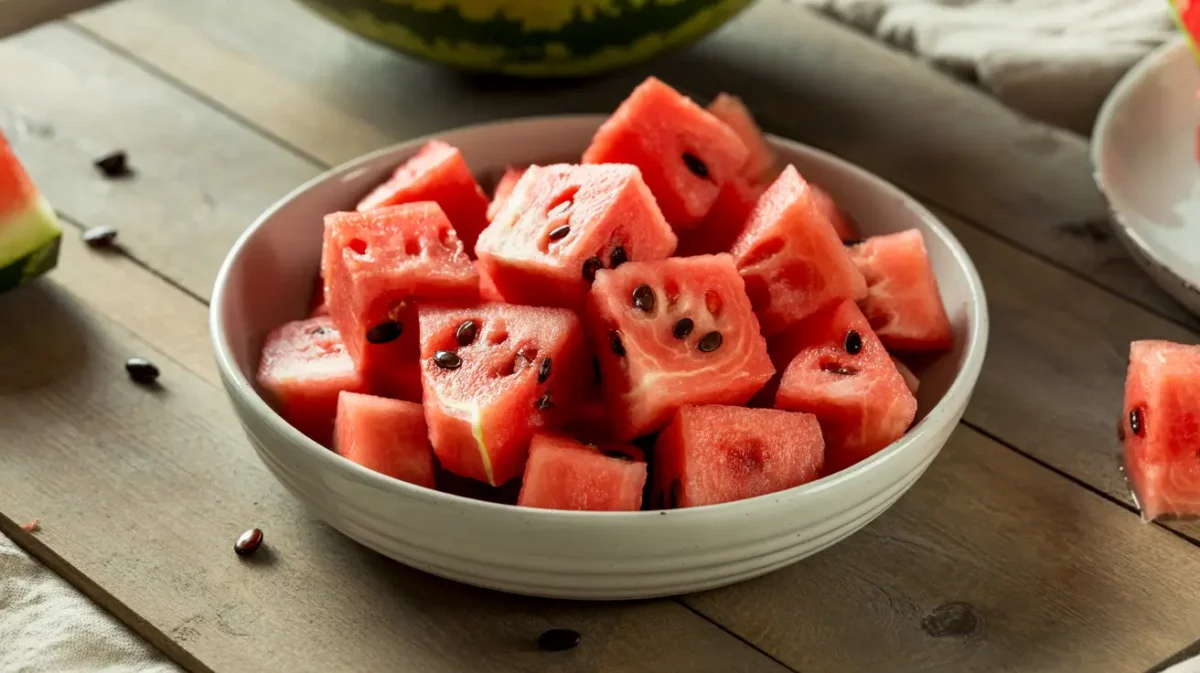introduction
Watermelon ketogenic diet is one of the most common questions people ask when starting keto. While watermelon is sweet and refreshing, many wonder if it can fit into a low-carb lifestyle without knocking them out of ketosis. In this guide, you’ll learn the carb content of watermelon, how it impacts blood sugar, keto-friendly portion sizes, and tips to enjoy it wisely. Don’t miss our detailed insights on the watermelon flush diet, which perfectly complements this topic.
table of contents
Table of Contents
What Is the keto-friendly watermelon?
The watermelon ketogenic diet only makes sense once you understand the principles behind keto. The ketogenic diet is more than just cutting carbs it’s a complete metabolic shift that changes how your body produces energy.
Defining the keto-friendly watermelon
At its core, keto is a high-fat, moderate-protein, and very low-carbohydrate diet. By slashing daily carbs to about 20–50 grams of net carbs, the body switches from burning glucose to burning fat. This state, known as ketosis, allows your liver to produce ketones, which become your primary energy source. Many people follow keto to manage weight, stabilize blood sugar, and improve energy.
Why Carbohydrate Limits Matter
Carbohydrates are the biggest obstacle to staying in ketosis. That’s why portion control is critical. Keto focuses on net carbs total carbs minus fiber and certain sugar alcohols. Fiber doesn’t raise blood sugar significantly, so it doesn’t “count” the same way. For example, leafy greens are low in net carbs, while fruit like watermelon contains natural sugars and less fiber, making its net carb value much higher per serving.
How This Relates to keto-friendly watermelon
This framework explains why many fruits are restricted on keto. A small portion of watermelon may fit, but large servings can quickly exceed carb limits. To see how watermelon compares to other fruit options, explore our guide on the low-carb diet watermelon.
Understanding these basics lays the foundation for deciding whether watermelon has a place in your ketogenic lifestyle.
Watermelon Nutrition Facts & Carb Content

Understanding the nutritional profile is essential before including watermelon in a watermelon ketogenic diet. While it’s light, refreshing, and nutrient-rich, it still contains carbs that must be measured carefully.
Carbohydrates and Net Carbs in keto-friendly watermelon
One cup of diced watermelon (about 152 grams) contains 11.6 grams of total carbohydrates, less than 1 gram of fiber, and about 11 grams of net carbs. For keto dieters aiming for just 20–30 grams of net carbs per day, that’s nearly half the daily allowance. A half-cup portion, on the other hand, delivers 5–6 grams of net carbs, making it easier to fit into a strict keto plan.
Hydration and Nutrients Beyond Carbs
watermelon on keto is composed of about 92% water, making it one of the most hydrating fruits available. It’s also rich in vitamin C, vitamin A, and lycopene, a powerful antioxidant linked to heart and skin health. With just 46 calories per cup, it’s a low-calorie food, but not particularly high in fiber, which makes satiety less lasting compared to berries or avocado.
Why Nutrition Facts Matter for Keto
The balance of hydration and nutrients can be beneficial, but the relatively higher net carb content requires caution. If you’re exploring alternatives that still satisfy cravings, check out our creative frozen fruit snacks, which can be adapted to fit a keto-friendly lifestyle.
Knowing these facts helps you judge whether watermelon can be part of your daily keto carb budget.
Can I Eat watermelon on keto Diet
The heart of the watermelon ketogenic diet question is simple: can watermelon be eaten without disrupting ketosis? The answer is yes, but portion size and timing are key.
Watermelon Compared to Other Fruits
Watermelon is lower in carbs than bananas, grapes, or mangoes, but it’s not the lowest-carb fruit overall. A full cup of diced watermelon has about 11 grams of net carbs, which may be too much for someone on a strict 20-gram daily target. In contrast, a half-cup portion provides 5–6 grams, which is easier to manage within keto’s limits.
Strategies for Staying in Ketosis with Watermelon
Portion control is critical. Many keto dieters enjoy watermelon in ½ cup servings rather than full cups to avoid carb overload. Eating watermelon alongside a fat or protein source—such as cheese, nuts, or Greek yogurt—slows digestion and minimizes blood sugar spikes. Timing also matters: consuming watermelon after exercise may reduce its impact on ketosis, as your body is more likely to use the glucose immediately.
Balancing Enjoyment and Restrictions
It’s possible to fit small servings into your keto routine without losing progress. For additional insight into structured approaches, explore our guide on does a watermelon diet work.
When eaten mindfully, watermelon can add variety, flavor, and hydration to your ketogenic plan.
How Many Pieces of watermelon on keto?
One of the most frequent questions about the watermelon ketogenic diet is how many pieces you can safely eat without breaking ketosis. The answer depends on portion sizes, carb limits, and how you structure the rest of your meals.
Portion Sizes and Net Carb Counts
A standard one-cup serving of diced watermelon on keto has about 11 grams of net carbs. For someone on a strict 20-gram daily limit, that’s more than half the budget. Cutting the serving down to ½ cup, or about 10–12 small cubes, lowers the carb load to around 5–6 grams of net carbs, making it easier to fit into a keto plan. If you prefer slices, a wedge the size of your palm is roughly the same carb equivalent.
Adapting Portions to Your Keto Plan
Your personal carb allowance determines how much watermelon you can enjoy. Those with a 30–50 gram daily net carb target have more flexibility than those sticking to 20 grams or less. Another strategy is spacing portions throughout the day for instance, a few cubes after lunch and a few more in the evening. This method reduces the risk of a sudden carb spike.
If you’d like additional low-carb snack alternatives that pair well with keto, check out our recipe for air fryer protein donut holes. These treats deliver sweetness without pushing you over your carb limit.
With smart portion control, watermelon can be enjoyed on keto without compromising ketosis.
Does Watermelon Spike Blood Sugar?

When considering the watermelon ketogenic diet, it’s not just about carb counts—it’s also about how the fruit impacts blood sugar levels. Since watermelon is naturally sweet, many keto followers worry it could cause spikes that disrupt ketosis.
Glycemic Index and Glycemic Load of watermelon on keto
watermelon on keto has a glycemic index (GI) of around 50, which places it in the moderate range. At first glance, this suggests watermelon on keto could raise blood sugar more than other fruits. However, the story changes when you consider glycemic load (GL) a measure that accounts for both carb quality and serving size. Because watermelon is mostly water, its glycemic load is relatively low, meaning a small serving is unlikely to cause a dramatic blood sugar spike.
Factors That Influence Blood Sugar Response
Your individual response depends on several factors, including portion size, timing, and what else you eat alongside the fruit. Pairing watermelon with a protein or fat, such as cheese or nuts, helps slow digestion and soften the impact on blood sugar. Eating watermelon after exercise is another strategy, since your body uses glucose more efficiently at that time.
Making Blood Sugar-Friendly Choices
If you’re managing blood sugar as part of your keto journey, moderation remains the key. For more structured approaches that explore fruit and diet patterns, check out our insights on the watermelon cleanse diet.
By choosing smaller portions and pairing wisely, watermelon can be enjoyed without significant spikes in blood sugar.
What Is the Lowest Carb Fruit?
The watermelon ketogenic diet often raises another question: if watermelon isn’t the lowest in carbs, which fruits are better options for keto? Choosing the right fruits makes a big difference in staying within your daily carb limits.
Fruits With the Lowest Net Carbs
Some fruits stand out for their extremely low carb content. Avocados are one of the best choices, with only about 1–2 grams of net carbs per 100 grams, thanks to their high fiber content. Olives are also keto-friendly, offering healthy fats and virtually no sugar. Berries such as raspberries, blackberries, and strawberries—are another strong choice, usually containing 4–6 grams of net carbs per 100 grams, while also delivering fiber and antioxidants. Tomatoes, although often considered vegetables, are technically fruits and remain low in carbs at 3–4 grams of net carbs per 100 grams.
How watermelon on keto Compares to Other Fruits
Watermelon contains around 7–8 grams of net carbs per 100 grams, which places it higher than avocado or berries but much lower than bananas, grapes, or mangos, which can exceed 20 grams of net carbs per 100 grams. This makes watermelon acceptable in moderation, though not the very lowest-carb fruit available.
For more insights into how watermelon fits into low-carb living, don’t miss our complete breakdown of the watermelon detox diet.
By comparing fruits carefully, keto followers can enjoy variety while staying comfortably in ketosis.
Benefits and Drawbacks of Eating Watermelon on Keto
The watermelon ketogenic diet has both pros and cons. While this fruit offers hydration and nutrients, it also carries some risks for those trying to remain in ketosis.
Key Benefits of Watermelon on Keto
One of the greatest benefits of watermelon is its high water content—about 92%—which makes it incredibly hydrating. This is especially helpful on keto, since reduced glycogen storage often leads to water loss. Watermelon also provides vitamin C, vitamin A, and lycopene, a powerful antioxidant linked to heart and skin health. With only 46 calories per cup, it’s a light, refreshing option compared to many other fruits. Additionally, its natural sweetness can help curb sugar cravings, giving keto followers a healthier alternative to processed desserts.
Potential Drawbacks to Consider
Despite its benefits, watermelon is not without challenges on keto. Its net carb count of 7–11 grams per serving can quickly add up, especially for those with strict 20-gram daily limits. Unlike berries, it is low in fiber, meaning it won’t keep you full for long. Overeating watermelon may cause blood sugar fluctuations and even risk knocking you out of ketosis. The key is moderation and portion control.
For those seeking creative keto-friendly treats that avoid these drawbacks, don’t miss our recipe for the legendary protein donut. It’s a smart alternative when you want sweetness without the carb load.
By weighing both sides, you can decide if watermelon deserves a place in your ketogenic routine.
Tips to Include Watermelon on Keto

The watermelon ketogenic diet can work, but only when you approach it with strategy. With careful planning, you can enjoy the fruit’s sweetness without exceeding your carb allowance or risking ketosis.
Pair Watermelon With Keto-Friendly Foods
One of the best ways to minimize blood sugar spikes is to combine watermelon with fats or protein. For example, pairing small cubes with feta cheese, nuts, or full-fat Greek yogurt slows digestion and balances the fruit’s natural sugars. This approach makes it easier for your body to handle the carbs while staying satisfied.
Control Portions and Timing
Portion control is essential. Stick to ½ cup servings, which deliver about 5–6 grams of net carbs. Spacing these portions throughout the day—such as a few cubes after lunch and another small amount as an evening snack—helps prevent carb overload. Timing also matters. Eating watermelon after a workout can be less disruptive, since your body is more efficient at processing glucose when muscles need replenishment.
Use Alternatives to Avoid Overeating
If cravings for sweet snacks hit often, try swapping in other keto-friendly recipes that satisfy without the carb impact. For example, check out our high-protein low-fat dessert recipe for a treat that’s both satisfying and safe for keto.
With mindful pairing, smart timing, and controlled portions, watermelon can be enjoyed as part of a ketogenic lifestyle without compromising your progress.
Sample Keto-Friendly Watermelon Serving Ideas
The watermelon ketogenic diet doesn’t mean you have to avoid the fruit entirely. By getting creative, you can enjoy small, satisfying servings that fit within your carb budget and bring variety to your keto meals.
Simple Snack-Size Portions
One of the easiest ways to enjoy watermelon is in ½ cup servings of diced cubes. These small portions can be paired with keto-friendly foods like cheese or nuts to make them more filling. For a refreshing twist, freeze the cubes and enjoy them like mini popsicles—perfect for hot days without the guilt.
Creative Low-Carb Recipes
Watermelon pairs surprisingly well with savory flavors. A watermelon feta salad with mint and a drizzle of olive oil offers a balanced mix of sweetness, saltiness, and fat. Another option is a watermelon “sorbet” made by blending frozen cubes with lime juice for a refreshing treat. Infused water is also an excellent idea—add thin slices of watermelon to cold water with cucumber and mint for flavor without heavy carbs.
Smart Dessert Alternatives
When sugar cravings strike, having low-carb dessert options on hand prevents overindulging in fruit. Don’t miss our creamy ninja creami protein ice cream, a keto-friendly dessert that’s just as satisfying as a fruity snack.
These ideas show that with portion control and creativity, watermelon can enhance your ketogenic lifestyle while keeping you on track with your goals.
FAQ
1. Can I eat watermelon on a ketogenic diet?
Yes, but only in moderation. One cup (~152 g) has about 11 g net carbs, which can be half of a strict keto allowance. (Healthline)
2. How many pieces of watermelon can I eat on keto?
A ½ cup serving (~10–12 cubes) provides around 5–6 g net carbs and is easier to fit into keto than a full cup (~11 g net carbs). (Medical News Today)
3. Does watermelon spike blood sugar?
Watermelon has a moderate glycemic index (~72) but a low glycemic load (~5 per serving) due to its water content. Small portions, especially paired with fats or protein, are unlikely to cause large spikes. (Signos, Harvard Health)
4. What is the lowest carb fruit?
The lowest-carb fruits include avocados, olives, tomatoes, and berries (raspberries, blackberries, strawberries). These usually contain 1–6 g net carbs per 100 g, much less than most fruits. (Verywell Health)
5. What happens if I eat too much watermelon on keto?
Overeating can push you above your carb limit, risk kicking you out of ketosis, and cause blood sugar swings.
6. Is watermelon rind keto-friendly?
Yes, the rind is very low in sugar, but it provides fewer nutrients and less flavor than the flesh. It’s sometimes used pickled or in recipes.
Conclusion
The watermelon ketogenic diet shows that even sweet fruits can have a place in keto when eaten in moderation. With around 7–11 grams of net carbs per cup, watermelon isn’t the lowest-carb fruit, but small portions can fit into most plans without disrupting ketosis. Pairing it with protein or fat helps reduce blood sugar impact, while portion control ensures you stay within your carb goals.
If you’re looking for more keto snack strategies, explore our guide to budget-friendly protein snacks, packed with ideas to keep cravings in check. For extra recipe inspiration beyond keto, don’t miss the creative food ideas on HighTasty.
By applying these tips, you can enjoy watermelon while staying aligned with your ketogenic goals.

